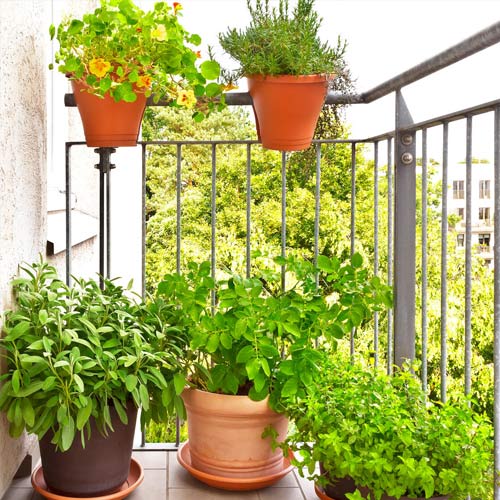Garden weeds are a common challenge for beginners, but managing them naturally ensures a healthy and chemical-free garden. Weeds compete with plants for water, sunlight, and nutrients, but with proper knowledge and consistent care, they can be controlled effectively. This guide expands on natural strategies for weed management, including prevention, identification, removal, and maintenance, all designed to help beginners create a thriving, balanced garden.

Understanding Weeds and Their Impact
Weeds are unwanted plants that grow rapidly and can outcompete your garden crops. Common garden weeds include dandelions, crabgrass, bindweed, and chickweed. While some weeds may provide minor benefits, like attracting pollinators or adding organic matter, most reduce productivity. Early identification and timely removal prevent weeds from producing seeds and spreading throughout your garden.
Prevention Strategies
Preventing weeds is the most effective long-term strategy. Mulching, dense planting, and maintaining healthy soil are essential practices:
- Mulching: Apply 2–4 inches of organic mulch such as straw, bark, shredded leaves, or grass clippings. Mulch suppresses weed growth by blocking sunlight, conserves soil moisture, and decomposes to enrich the soil.
- Dense Planting: Plant crops closer together, leaving minimal space for weeds to germinate. Companion planting can also create a canopy that naturally shades out weed seeds.
- Healthy Soil: Rich, fertile soil encourages strong plant growth, making it harder for weeds to establish. Incorporate compost, organic fertilizers, and cover crops to maintain soil structure and fertility.
Manual Weed Removal
Manual removal is a beginner-friendly, effective way to control weeds:
- Remove weeds when they are young, before they set seeds.
- Use a hand fork, hoe, or weeding tool to loosen the soil and extract roots completely.
- For larger infestations, consider dividing the garden into sections and tackling one area at a time.
- Dispose of removed weeds carefully to prevent spreading seeds.
Using Natural Ground Covers
Ground covers and companion plants reduce space for weeds:
- Low-growing plants like creeping thyme, clover, or moss can form a dense mat, preventing weeds from establishing.
- Cover crops such as rye, buckwheat, or vetch suppress weeds, improve soil fertility, and prevent erosion.
- Plan your garden layout to integrate these plants between crops or in bare soil patches.

Organic Weed Killers
Several natural substances can help control weeds safely:
- Vinegar: Apply horticultural vinegar directly on weeds, avoiding contact with desirable plants. It works best on young, small weeds.
- Boiling Water: Pour boiling water over weeds in paths or isolated areas to kill them effectively.
- Corn Gluten Meal: Acts as a pre-emergent by preventing weed seeds from germinating. Apply in early spring for best results.
- Homemade Solutions: Mix salt sparingly or create natural herbicidal sprays using essential oils like clove or citrus.
Regular Garden Maintenance
Consistent maintenance is key to long-term weed control:
- Inspect your garden weekly for new weeds and remove them promptly.
- Maintain mulch layers and refresh as needed.
- Rotate crops each year to disrupt weed life cycles and reduce persistence.
- Monitor soil health and amend with organic matter to support plant resilience.
Encouraging Beneficial Organisms
A balanced ecosystem helps manage weeds naturally:
- Earthworms aerate soil, making it more favorable for crops and less hospitable for weed seedlings.
- Birds and beneficial insects may consume weed seeds or young plants.
- Planting flowering species can attract pollinators and predatory insects that indirectly support weed suppression.
Sustainable Practices
Incorporating sustainable gardening methods reduces weed problems over time:
- Limit excessive tilling, which can bring dormant weed seeds to the surface.
- Reuse organic matter such as compost or mulch to enrich soil and reduce bare patches where weeds may grow.
- Integrate perennial plants that outcompete weeds and require minimal maintenance.
- Implement rainwater harvesting to avoid over-irrigation that encourages weed growth.
Tips for Beginners
- Begin with a small area to manage weeds effectively without feeling overwhelmed.
- Learn to identify common local weeds to act quickly.
- Combine multiple natural strategies for a more effective weed control plan.
- Be patient, as natural methods take consistent effort and may take time to show full results.
- Keep a garden journal to track weed emergence patterns and successful strategies.
Conclusion
Dealing with garden weeds naturally is both eco-friendly and effective. By using preventive measures, manual removal, ground covers, organic weed killers, and sustainable practices, beginners can maintain a healthy, productive garden without chemicals. Regular attention and a proactive approach reduce weed competition, improve plant health, and contribute to a thriving, balanced garden ecosystem.








